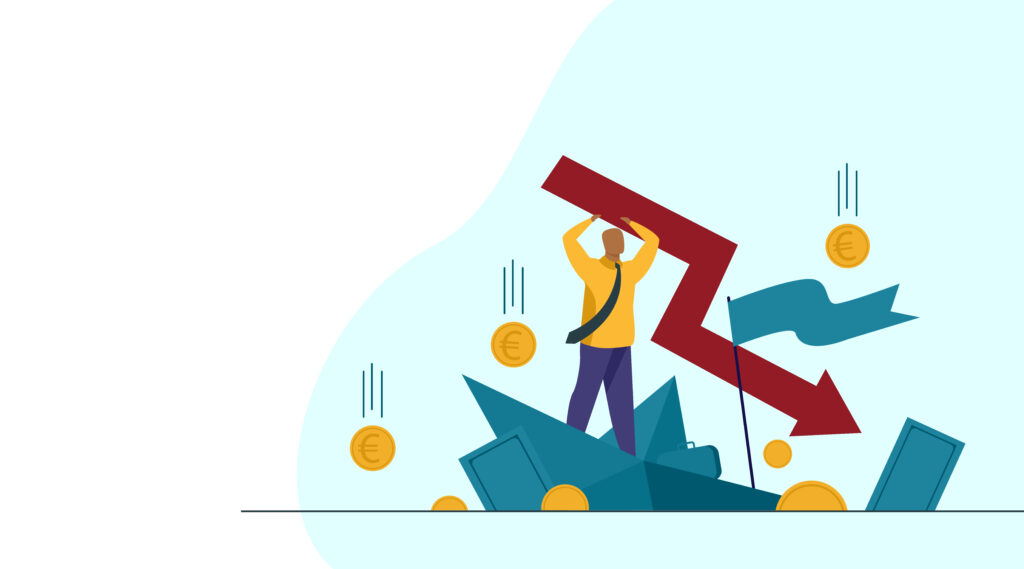THE PSYCHOLOGY OF MONEY

By understanding and, if necessary, reshaping your money mindset, you can improve your relationship with money and, ultimately, your financial health.
Celebrate Valentine’s Day

Valentine’s Day often comes with a lot of pressure to show love through grand gestures and sometimes costly gifts. Here’s how to celebrate Valentine’s Day meaningfully without breaking the bank.
My Journey

HOME WHO WE ARE ABOUT EMEKA OUR BLOG SERVICES OUR COACHING PROGRAMS ABUNDANTIA INDIVIDUAL COACHING COUPLES COACHING FINANCIAL MENTORING PRESENTATIONS WORKSHOPS CONTACT US FAQs HOME WHO WE ARE ABOUT EMEKA OUR BLOG SERVICES OUR COACHING PROGRAMS ABUNDANTIA INDIVIDUAL COACHING COUPLES COACHING FINANCIAL MENTORING PRESENTATIONS WORKSHOPS CONTACT US FAQs MY JOURNEY our coaching programs LOADING CONVERSATIONS “Have you thought of becoming a coach? You’d be good at that. You sound like you truly care about the people you speak to.” The smile on my face belied the inner turmoil that I was feeling. Not that I was not grateful for the complimentary words that I was hearing. In fact, I had already heard them more than once, and it was becoming harder to ignore. No. It was because I knew what was coming next. “However, for me. I don’t think that this will work. I really like you, but the product doesn’t work for me. Thanks for your time, though. Would you like one more coffee?” There it was. Another refusal. My frustration threatened to erupt. Somewhere, in the dark recesses of my mind, I noted the stress on the ‘really’. In the moment, it provided scant conciliation. I had answered emails and at this particular meeting, answered two A4 sheets of questions. Keeping my smile rooted to my face, I made up an excuse as to why I could not stay to take him up on his kind offer. I think it was that I had already spent a lot of time with him and I had another meeting coming up. Regardless, the meeting ended shortly after. Not long afterwards, I was seated in a slightly upmarket coffee shop, with a piping hot and reflectively dark cafe lungo contrasting against the brilliantly white cup that it sat in. I reflected back on the meeting, my mind’s eye conjuring up the images and playing them on my internal screen. What could have changed? What could I had done differently? The aforementioned frustration boiled over as I struck the table with the palm of my hand, startling my lungo and drinkers around me in unison. My mood darkened as I watched tendrils of dark liquid spread across the wooden table. Not for the first time, I felt like quitting the whole thing and starting again. Looking out of the window and watching the populace walk past me, without so much as a curious glance in my direction, my mind tugged on a thread. Coaching…have you thought of becoming a coach? As my mind continued to tug, I felt the churning and spark of a new idea forming. I could almost feel my neurons rapidly travelling in my mind. A smile creased my lips as I felt a new energy course through my veins. It took a few more years, but that was the day the concept of The Loading Circle, was born. FINANCIAL MINDSET & WELLNESS THE PSYCHOLOGY OF MONEY The Loading Circle 29 October 2024 MINDFUL SPENDING & CONSUMPTION Celebrate Valentine’s Day The Loading Circle 14 February 2023 STORYTIME My Journey The Loading Circle 27 January 2023 BUDGETING & FINANCIAL PLANNING DEBT MANAGEMENT & CREDIT HEALTH FINANCIAL MINDSET & WELLNESS The Four Key Components to Financial Literacy The Loading Circle 08 January 2023 FINANCIAL MINDSET & WELLNESS Seven Tips to Improve Your Finances in 2023 The Loading Circle 02 January 2023 INVESTING & WEALTH-BUILDING Investing a Lump Sum The Loading Circle 11 December 2022 FINANCIAL MINDSET & WELLNESS The Power of Compound Interest The Loading Circle 11 November 2022 FINANCIAL MINDSET & WELLNESS What Is Inflation? The Loading Circle 11 November 2022 FINANCIAL MINDSET & WELLNESS The Importance of ‘The Folder’ The Loading Circle 11 November 2022 INVESTING & WEALTH-BUILDING MONEY TIPS & RESOURCES Is the Recession a Bad Thing? The Loading Circle 11 November 2022 FINANCIAL MINDSET & WELLNESS The Difference Between a Financial Coach and a The Loading Circle 11 November 2022 FINANCIAL MINDSET & WELLNESS What is a Financial Coach? The Loading Circle 11 November 2022 MENU Home Who We Are Loading Services Contact Us Social Networks theloadingcircle theloadingcircle @loadingcircle theloadingcircle legal Cookie Policy Privacy Policy Disclaimer Terms and Conditions THE LOADING CIRCLE It all starts with a conversation © 2024 THE LOADING CIRCLE | ALL RIGHTS RESERVED | CREDITS
The Four Key Components to Financial Literacy

Financial literacy is more than a financial buzzword; it’s the foundation for making informed, effective financial choices that shape your future.
Seven Tips to Improve Your Finances in 2023

It’s the start of the New Year. What better time to get your finances under control or to get peace of mind over them than to start now?
Investing a Lump Sum

Investing is exciting, but before jumping into the stock market or other opportunities, it’s essential to take a hard look at your current financial situation.
The Power of Compound Interest

Compound interest is one of those concepts that, once you understand it, can completely transform how you think about money and investing.
Understanding Inflation

Inflation is one of the most discussed economic phenomena, and for good reason—it affects nearly every aspect of financial life. At its essence, inflation refers to the rise in the general level of prices for goods and services over time
The Importance of ‘The Folder’

Planning for the future is never easy, but one of the most thoughtful things you can do for your family is to organise your finances and inheritance details before you pass away.
Is the Recession a Bad Thing?

HOME WHO WE ARE ABOUT EMEKA OUR BLOG SERVICES OUR COACHING PROGRAMS ABUNDANTIA INDIVIDUAL COACHING COUPLES COACHING FINANCIAL MENTORING PRESENTATIONS WORKSHOPS CONTACT US FAQs HOME WHO WE ARE ABOUT EMEKA OUR BLOG SERVICES OUR COACHING PROGRAMS ABUNDANTIA INDIVIDUAL COACHING COUPLES COACHING FINANCIAL MENTORING PRESENTATIONS WORKSHOPS CONTACT US FAQs is the recession a bad thing? our coaching programs LOADING CONVERSATIONS INTRODUCTION When a recession hits, uncertainty and anxiety often follow. Job losses, market instability, and reduced consumer spending dominate the narrative, leading many to view recessions as purely negative. However, recessions are a natural part of the economic cycle, offering both challenges and opportunities. By understanding the dynamics of downturns and adopting a proactive approach, you can mitigate risks, capitalise on growth opportunities, and emerge stronger. The Silver Linings of Economic Downturns Innovation and Creativity Amid Adversity Recessions force individuals, businesses, and even governments to reassess priorities and rethink strategies. Limited resources and tighter budgets can ignite innovation. Businesses are compelled to explore creative solutions, adopt new technologies, and streamline processes to remain competitive. These periods of introspection and adaptation often lead to breakthroughs that drive long-term progress. Historical examples abound. For instance, during the 2008 financial crisis, companies like Airbnb and Uber capitalised on shifting consumer behaviours, offering cost-effective alternatives to traditional services. Their innovative models not only weathered the storm but also redefined their industries, proving that adversity can serve as a powerful catalyst for change. Economic Efficiency and Resilience Recessions can act as a reset for the economy. Companies unable to adapt to the new landscape may close their doors, but this process often reallocates resources—capital, labour, and market share—to more efficient and resilient businesses. While this realignment is painful in the short term, it creates a stronger, more competitive economic foundation. For individuals, this is a time to focus on efficiency, too. Households often tighten budgets and reconsider spending habits during economic downturns. This discipline, though initially imposed by necessity, can lead to better financial management and long-term savings habits. Opportunities for Savvy Investors Investing during a recession might seem counterintuitive, but it’s often one of the best times to build wealth. Asset prices, particularly stocks and property, typically decline during economic downturns, creating opportunities to buy undervalued investments. Historically, markets rebound after recessions, rewarding patient investors with significant gains. Consider the principle of “buy low, sell high.” While market volatility can be intimidating, those who take a long-term perspective often see recessions as a chance to build their portfolios at a discount. Diversified investments in industries poised for recovery—such as technology, healthcare, or green energy—can position investors for substantial returns as the economy stabilises and grows. For the risk-averse, bonds and other fixed-income securities may offer stability and predictable returns, even during turbulent times. The key is to balance risk with reward and ensure your investment strategy aligns with your financial goals. How to Navigate a Recession Successfully Build Financial Resilience The foundation of surviving and thriving during a recession is financial preparedness. Start by building or reinforcing your emergency fund. Ideally, this should cover three to six months of essential expenses, providing a safety net against unexpected income loss or emergencies. Next, scrutinise your budget. Identify discretionary expenses that can be reduced or eliminated temporarily. Simple changes—like dining out less, cutting subscriptions, or shopping more strategically—can free up resources for savings or investments. Think of it as an opportunity to prioritise what truly matters. Stay Informed and Adaptable Understanding economic trends and their potential impact on your personal finances is crucial. Stay informed by following credible news sources, consulting financial advisors, or attending workshops. Knowledge empowers you to make decisions that align with your goals and risk tolerance. Adaptability is another essential skill. If your industry or job is at risk, consider acquiring new skills or certifications to increase your employability. Exploring alternative income streams, such as freelancing or starting a small business, can also provide stability and open doors to new opportunities. Leverage Investment Opportunities A recession is often the best time to invest if you have the financial capacity and a long-term horizon. Start by diversifying your portfolio to spread risk across different asset classes, such as stocks, bonds, and property. This strategy minimises the impact of poor performance in any single area. If you’re unsure where to start, consider working with a financial advisor to identify undervalued assets with strong recovery potential. Keep in mind that while the market’s short-term fluctuations can be unsettling, the long-term trend typically favours growth. Patience and discipline are your greatest allies. Focus on Personal Growth Economic downturns can be transformative not only for your finances but also for your personal development. Use this time to reflect on your career, relationships, and goals. Could this be an opportunity to pivot to a more fulfilling career path? Or perhaps a chance to reconnect with personal interests and hobbies? Investing in yourself—whether through education, professional development, or health and wellness—can yield dividends far beyond financial ones. By building skills and strengthening your mental and emotional resilience, you prepare yourself to thrive in any economic climate. Conclusion Recessions, while challenging, are not entirely negative. They foster innovation, improve economic efficiency, and present opportunities for growth and investment. By focusing on preparedness, adaptability, and informed decision-making, you can navigate economic downturns with confidence and resilience. Remember, recessions are temporary, but the skills and habits you cultivate during them can have a lasting impact. article faqs Are recessions always harmful? Not entirely. While they bring challenges, recessions often drive innovation, improve resource efficiency, and create investment opportunities. How long do recessions usually last? Most recessions last between six months and two years, depending on their causes and severity. Should I avoid investing during a recession? Not necessarily. Recessions often present opportunities to buy undervalued assets. A long-term investment strategy can help you benefit from market recoveries. What are the signs of an approaching recession? Signs include declining consumer spending, rising unemployment, falling GDP, and reduced business investments. Staying informed can help
Financial Coach vs Financial Advisor

A financial coach is like a personal trainer for your money. Their primary goal is to help you develop healthy financial habits and empower you to take control of your financial life.
What is a Financial Coach?

A financial coach works alongside you to develop a clear plan for managing your money and achieving your goals.
